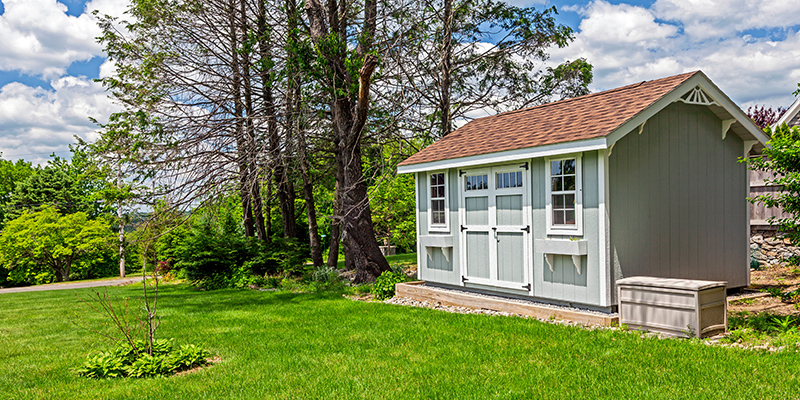Virginia HOA Laws
Homeowners associations should know about the many Virginia HOA laws that affect them. In doing so, they can avoid the risk of legal trouble.
Browse By Category
Sign up for Our Newsletter
Homeowners associations should know about the many Virginia HOA laws that affect them. In doing so, they can avoid the risk of legal trouble.
Virginia Common Interest Communities
Virginia Common Interest Communities sets up the Common Interest Community Board and Ombudsman. You can find it under Title 54.1, Chapter 23.3 of the Code of Virginia. It consists of two articles, each one containing sections of their own.
Article 1. Common Interest Community Board
- Definitions
- Certain real estate arrangements and covenants not deemed to constitute a common interest community
- License required; certification of employees; renewal; provisional license
- Exceptions and exemptions generally
- Common Interest Community Board; membership; meetings; quorum
- Powers and duties of the Board
- Annual report; form to accompany resale certificates and disclosure packets
- General powers and duties of Board concerning associations
- Cease and desist orders
- Protection of the interests of associations; appointment of receiver for common interest community manager
- Variation by agreement
Article 2. Common Interest Community Management Information Fund; Common Interest Community Ombudsman; Common Interest Community Management Recovery Fund
- Definitions
- Common Interest Community Management Information Fund
- Common Interest Community Ombudsman; appointment; powers and duties
- Association complaint procedures; final adverse decisions
- Common Interest Community Management Recovery Fund
Virginia Common Interest Community Ombudsman Regulations
Virginia Common Interest Community Ombudsman Regulations tackles complaints from members and non-members of an association. Under this regulation, associations must set rules for accepting and evaluating complaints.
You can find this regulation under Title 18, Chapter 70 of the Code of Virginia. It consists of four parts, each one broken down further into sections.
Part I. General
Part II. Association Complaint Procedure
- Requirement for association to develop an association complaint procedure
- Establishment and adoption of written association complaint procedure
- Association complaint procedure requirements
- Distribution of association complaint procedure
- Maintenance of association record of complaint
- Failure of association to establish and utilize association complaint procedure
Part III. Final Adverse Decision
- Filing of notice of final adverse decision
- Waiver of filing fee
- Review of final adverse decision
- Decision from the notice of final adverse decision
- Referral for further action
Part IV. Office of the Common Interest Community Ombudsman
Virginia Common Interest Community Management Information Fund Regulations
Virginia Common Interest Community Management Information Fund Regulations govern the powers and duties of the Common Interest Community Board. It covers annual reports by associations, condominiums, cooperatives, and property owners.
You can find these regulations under Title 18, Chapter 60 of the Code of Virginia. It consists of the following sections:
- Purpose
- Definitions
- Association registration and renewal
- Annual report by association
- Annual report by condominium association
- Annual report by cooperative association
- Annual report by property owners’ association
- Registration fee
Virginia Property Owners Association Act
The Virginia Property Owners Association Act went into effect on October 1, 2019. This Act regulates the formation and operation of associations established from 1959 onwards.
You can find this Act under Title 55.1, Chapter 18 of the Code of Virginia. It has three articles, each one with its own set of sections.
Article 1 – General Provisions
- Definitions
- Applicability
- Developer to register and file annual report; payment of real estate taxes attributable to the common area
- Limitation on certain contracts and leases by declarant
- Documents to be provided by declarant upon transfer of control
- Association charges
- Rental of lots
- Statement of lot owner rights
Article 2 – Disclosure Requirements; Authorized Fees
- Contract disclosure statement; right of cancellation
- Contents of association disclosure packet; delivery of packet
- Fees for disclosure packet; professionally managed associations
- Fees for disclosure packet; associations not professionally managed
- Properties subject to more than one declaration
- Requests by settlement agents
- Exceptions to disclosure requirements
Article 3 – Operation and Management of Association
- Access to association records; association meetings; notice
- Meetings of the board of directors
- Distribution of information by members
- Common areas; notice of pesticide application
- Adoption and enforcement of rules
- Display of the flag of the United States; necessary supporting structures; affirmative defense
- Home-based businesses permitted; compliance with local ordinances
- Use of for sale signs in connection with sale
- Designation of authorized representative
- Electric vehicle charging stations permitted
- Assessments; late fees
- Authority to levy special assessments
- Annual budget; reserves for capital components
- Deposit of funds; fidelity bond
- Compliance with declaration
- Amendment to declaration and bylaws; consent of mortgagee
- Validity of declaration; corrective amendments
- Reformation of declaration; judicial procedure
- Use of technology
- Lien for assessments
- Notice of sale under deed of trust
- Annual report by association
- Condemnation of common area; procedure
Virginia Condominium Act
The Virginia Condominium Act regulates all condominiums and horizontal property regimes formed after July 1, 1974. You can find this Act under Title 55.1, Chapter 19 of the Code of Virginia. It consists of five articles, each one broken down further into sections.
Article 1 – General Provisions
- Definitions
- Application and construction of chapter
- Variation by agreement
- Separate assessments, titles, and taxation
- Association charges
- Local ordinances; nonconforming conversion condominiums; applicability of Uniform Statewide Building Code; other regulations
- Eminent domain
Article 2 – Creation, Alteration, and Termination of Condominiums
- How condominium may be created
- Release of liens
- Description of condominium units
- Execution of condominium instruments
- Recordation of condominium instruments
- Construction of condominium instruments
- Complementarity of condominium instruments; controlling construction
- Validity of condominium instruments; discrimination prohibited
- Compliance with condominium instruments
- Contents of declaration
- Allocation of interests in the common elements
- Reallocation of interests in common elements
- Assignments of limited common elements; conversion to common element
- Contents of plats and plans
- Bond to insure completion of improvements
- Preliminary recordation of plats and plans
- Easement for encroachments
- Conversion of convertible lands
- Conversion of convertible spaces
- Expansion of condominium
- Contraction of condominium
- Easement to facilitate conversion and expansion
- Easement to facilitate sales
- Declarant’s obligation to complete and restore
- Alterations within units
- Relocation of boundaries between units
- Subdivision of units
- Amendment of condominium instruments
- Use of technology
- Merger or consolidation of condominiums; procedure
- Termination of condominium
- Rights of mortgagees
- Statement of unit owner rights
Article 3 – Management of Condominium
- Bylaws to be recorded with declaration; contents; unit owners’ association; executive board; amendment of bylaws
- Amendment to condominium instruments; consent of mortgagee
- Reformation of declaration; judicial procedure
- Control of condominium by declarant
- Deposit of funds
- Books, minutes, and records; inspection
- Management office
- Transfer of special declarant rights
- Declarants not succeeding to special declarant rights
- Meetings of unit owners’ association and executive board
- Distribution of information by members
- Display of the flag of the United States; necessary supporting structures; affirmative defense
- Meetings of unit owners’ association and executive board; quorums
- Meetings of unit owners’ association and executive board; voting by unit owners; proxies
- Officers
- Upkeep of condominiums; warranty against structural defects; statute of limitations for warranty; warranty review committee
- Control of common elements
- Common elements; notice of pesticide application
- Tort and contract liability; judgment lien
- Suspension of services for failure to pay assessments; corrective action; assessment of charges for violations; notice; hearing; adoption and enforcement of rules and regulations
- Limitation of occupancy of a unit
- Use of for sale sign in connection with resale
- Designation of authorized representative
- Electric vehicle charging stations permitted
- Insurance
- Liability for common expenses; late fees
- Annual budget; reserves for capital components
- Lien for assessments
- Notice of sale under deed of trust
- Bond to be posted by declarant
- Restraints on alienation
Article 4 – Administration of Chapter; Sale, Etc., of Condominium Units
- Common Interest Community Board
- General powers and duties of the Common Interest Community Board
- Exemptions from certain provisions of article
- Rental of units
- Limitations on dispositions of units
- Application for registration; fee
- Public offering statement; condominium securities
- Inquiry and examination
- Notice of filing and registration
- Annual report by declarant
- Annual report by unit owners’ association
- Termination of registration
- Conversion condominiums; special provisions
- Escrow of deposits
- Declarant to deliver declaration to purchaser
- Investigations and proceedings
- Cease and desist orders
- Revocation of registration
- Judicial review
- Penalties
Article 5 – Disclosure Requirements; Authorized Fees
- Resale by purchaser; contract disclosure; right of cancellation
- Contents of resale certificate; delivery
- Fees for resale certificate
- Properties subject to more than one declaration
- Requests by settlement agents
- Exceptions to disclosure requirements
Virginia Condominium Regulations
This chapter regulates the powers and duties of the Common Interest Community Board under the Virginia Condominium Act. You can find this under Title 18, Chapter 30 of the Code of Virginia, consisting of the following parts:
- General – Sections 10 through 60
- Marketing – Sections 70 through 80
- Application for Registration – Sections 90 through 150
- Public Offering Statement – Sections 160 through 390
- Conversion Condominiums – Sections 400 through 450
- Post-Registration Provisions – Sections 460 through 640
- Board Authority and Standards of Conduct – Sections 650 through 690
Virginia Horizontal Property Act
The Virginia Horizontal Property Act regulates all condominium associations and projects created prior to July 1, 1974. You can find it under Title 55.1, Chapter 20 of the Code of Virginia. It contains four articles, each one broken down further into sections.
Article 1 – General Provisions
Article 2 – Creation and Alteration of Horizontal Property Regimes
Article 3 – Management of Horizontal Property Regimes
- Apartments subject to individual titles and interests; recording; transfer of garage unit
- Joint or common ownership
- Exclusive and common rights of owners
- Master deed or lease; recordation; particulars
- Deeds of individual apartments
- Regrouping or merger of estates with principal property
- Merger not to bar subsequent condominium
- Bylaws governing administration of buildings
- Books and records; inspection; audit
- Contributions by co-owners
- Payment of assessments upon conveyance of apartment; priority
- Liens or encumbrances
- Rule against perpetuities; rule restricting unreasonable restraints on alienation
- Liability of owner
- Compliance by co-owner with bylaws and administrative rules and regulations
Article 4 – Protection of Purchasers
Virginia Real Estate Cooperative Act
The Virginia Real Estate Cooperative Act regulates cooperative ownership in the state. You can find it under Title 55.1, Chapter 21 of the Code of Virginia. It consists of five parts, namely:
- General Provisions – Sections 2100 through 2111
- Creation, Alteration, and Termination of Cooperatives – Sections 2112 through 2131
- Management of Cooperatives – Sections 2132 through 2152
- Protection of Cooperative Purchasers – Sections 2153 through 2172
- Administration and Registration of Cooperatives – Sections 2173 through 2184
Virginia HOA Laws on Corporate Governance
The Virginia Nonstock Corporation Act governs nonstock corporations in relation to corporate structure, management, and procedure. In Virginia, most condominium and homeowners associations are formed as nonstock corporations. Therefore, the Virginia Nonstock Corporation Act applies to them as well.
You can find this Act under Title 13.1, Chapter 10 of the Code of Virginia. It consists of the following parts:
- General Provisions – Sections 801 through 814.1
- Fees – Sections 815 through 817
- Formation of Corporations – Sections 818 through 824
- Purposes and Powers – Sections 825 through 828
- Name – Sections 829 through 832
- Office and Agent – Sections 833 through 836
- Members and Meetings – Sections 837 through 852
- Member or Director Agreements – Sections 852.1 through 852.2
- Directors and Officers – Sections 853 through 874
- Indemnification – Sections 875 through 883
- Amendment of Articles of Incorporation and Bylaws – Sections 884 through 893
- Merger – Sections 893.1 through 898
- Domestication – Sections 898.2 through 898.7
- Sale of Assets – Sections 899 through 901
- Dissolution – Sections 902 through 918
- Foreign Corporations – Sections 919 through 931.1
- Records and Reports – Sections 932 through 936.2
- Transition Provisions – Sections 937 through 941
- Conversion to a Stock Corporation – Sections 941.01 through 944
- Conversion to a Limited Liability Company – Sections 944.1 through 944.7
- Miscellaneous Provisions – Sections 945 through 946
Virginia HOA Laws on Solar Energy Devices
The HOA laws of Virginia also extend to solar energy devices. According to Title 67, Chapter 7 of the Code of Virginia, community associations may not prevent an owner from installing a solar energy collector on their property unless the association’s recorded declaration includes such a provision. Associations can, however, impose reasonable restrictions relating to the size, placement, and location of solar devices such as solar panels.
Virginia HOA Laws on Fair Debt Collection
The Virginia Debt Collection Act is similar to the federal Fair Debt Collection Practices Act. This Act offers state-level protections to consumers and regulates debt collection practices. Under this Act, debt collectors may not use misleading, abusive, or unfair tactics when attempting to collect a debt.
Homeowners who experience unfair, abusive, or misleading debt collection practices may sue the debt collector in state or federal court. They can also submit a complaint to the Federal Trade Commission, the Consumer Financial Protection Bureau, or the Virginia Attorney General’s Office.
Fair Housing
The Virginia Fair Housing Law prohibits housing discrimination based on color, race, national origin, familial status, religion, sex, elderliness, or handicap. It works similarly to the federal Fair Housing Act.
Housing discrimination victims may file a private lawsuit in the federal district court within 2 years of the discriminatory offense. They may also submit a complaint to the U.S. Department of Housing and Urban Development or the Virginia Department of Professional and Occupational Regulation within a year of the act.
Trending Now
Related Article
Sign up for Our Monthly Newsletter
Sign up below for monthly updates on all HOA Resource

















